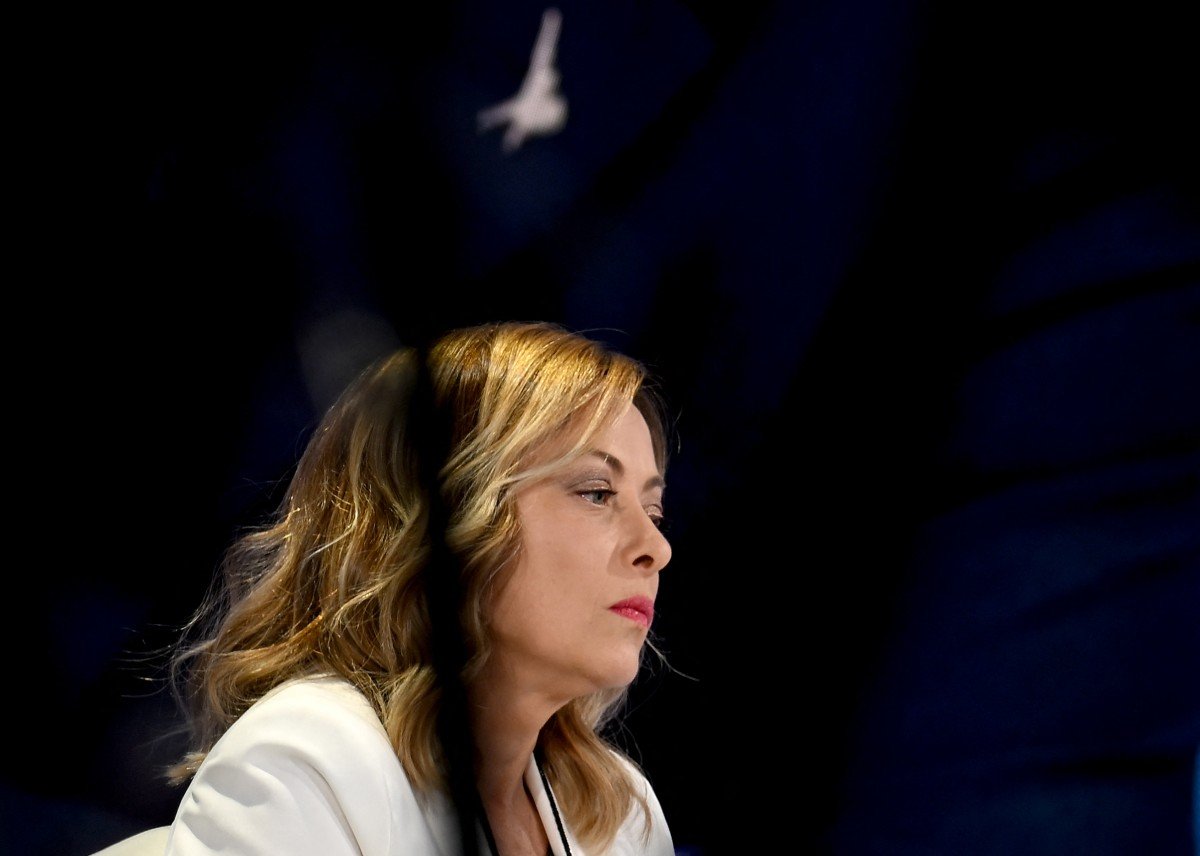“An Italy without children is an Italy that does not believe and does not plan. It is an Italy destined to slowly grow old and disappear,” said Draghi during a speech at a conference in the presence of the pope.
“To parliament, I listed the measures for young people, women and families, present in the National Recovery and Resilience Plan,” he added.
As part of its strategy to reverse the demographic decline, the government is working on a so-called Family Act due to introduce more generous child benefits, longer parental leave for fathers, and other incentives.
Speaking of a planned universal single allowance, the Prime Minister said this will give economic support to families and confirmed it will come into force from July “for the self-employed and the unemployed, who today do not have access to family allowances”.
READ ALSO: Italy’s ‘baby bonuses’: What payments are available and how do you claim?
“In 2022, we will extend it to all other workers, who will immediately see an increase in their existing allowances,” he added.
Draghi stated that the single allowance will also be there in the years to come – as it is one of those “era-making measures” they won’t go back on the year after.
Draghi stated that help is also coming in the form of “the construction of nurseries and kindergartens, the extension of full-time education and the strengthening of school infrastructure”.
Measures of around €21 billion are earmarked in total, including incentives for companies “to hire more women and young people”.
READ ALSO: Fast trains and extended building bonus: How Italy’s EU recovery plan could affect you
The Prime Minister referenced a study by the United Nations Population Fund, in which it was revealed families would like more children than they have.
He noted that the difference between the two is “very large” in Italy, with the desired figure standing at 2 children versus the reality of 1.24.

“The state must therefore accompany this new awareness, continue to invest in improving women’s conditions. And enable society – women and men – to have children,” he said.
Pointing to the falling birth rate in Italy, Draghi added, “This indicates that the problem is deeper and has to do with a lack of security and stability.
“In order to decide to have children, I have often said that young people need three things: a secure job, a house and a system of welfare and childcare services.”
“In Italy, unfortunately, we are behind on all these fronts,” he said.
“Today, half of Italians are at least 47 years old – the highest median age in Europe,” stated Draghi.
Italy has long been experiencing a decline in birth rates, with just 404,000 children born in 2020, according to the national statistics body ISTAT.
That’s the lowest number since the unification of Italy and almost 30 per cent less than ten years ago.
Italy has long suffered one of the lowest birth rates in Europe, but the situation has been exacerbated by the coronavirus pandemic.
Last year, the Italian population shrank by almost 400,000 — roughly the size of the city of Florence — to 59.3 million as deaths peaked, births bottomed out and immigration slowed down.
In 2012, Italy saw births fall to the lowest level since it became a nation state in 1861, to around 534,000. Since then, new record lows have been established every year.
In 2020, as coronavirus swept the country, the figure fell to 404,000.
For 2021, Istat expects a further drop to 384,000-393,000 — largely due to an expected post-Covid baby bust across the world.
In December and January – nine months after Covid-19 took hold in Italy – new births fell, year-on-year, by around 10 and 14 percent respectively.
READ ALSO: What is Italy doing to increase its plummeting birth rate?
Also speaking at the meeting, the pope expressed “sadness” at the situation for families in Italy and how women are “discouraged” from having children.
“How is it possible that a woman should feel ashamed of the most beautiful gift that life can offer? Not the woman, but society should be ashamed, because a society that does not welcome life stops living. Children are the hope that gives birth to a people,” he said.
For Draghi, the future of Italy depends on families, as he stated, “An Italy without children is an Italy that has no place in the future, an Italy that is slowly coming to an end.”





 Please whitelist us to continue reading.
Please whitelist us to continue reading.
This article confirms the hypocrisy around climate change and human encroachment into ecosystems. And is why I now ignore all the green rubbish around electric cars etc. More people means lifetimes of consumption, and ever greater populations means that we will never reduce our emissions to maintain the current human quality of life.
Evolution will remove humans from the top spot and we will be replaced by something more likely to survive. My bet is on rats or crows which seem to be able to survive anything!
Another comment on the hypocrisy and inconsistency of the Government in Italy….
As a gay couple together for 15 years, we would have loved to get married and have a brood of loving children ourselves… but not to be of course as for some reason, it’s ok to have children in Italy to save the country’s future if you’re heterosexual but not if you happen to be born gay…. so perhaps this inconsistency and hypocrisy could be looked at a bit more closely??
If you are gay then what you really want is to take the child of someone else who is forced to prostitute their womb because of poverty. Helping families conceive chidren naturally by relieving poverty is totally different than renting a womb from a poor woman.
Wow, that’s making quite a few assumptions… first of all, why are you assuming I’m not a woman? Second, why would we rent a womb, whatever that means; third; lots of poor women have children anyway…
and fourth, are you saying that a child born to a poor person is somehow less worthy?
Anyhow, we don’t have kids as we chose to play our part in reducing human impact on the planet. Not that it matters of course, as evolution will simply continue regardless of what humans decide to do.